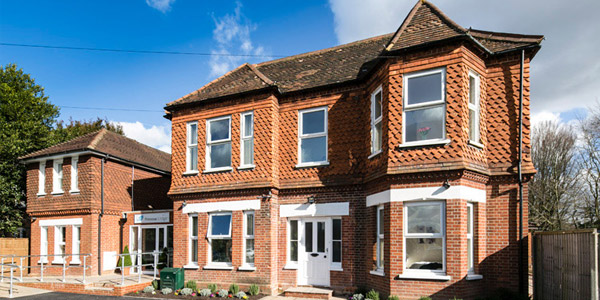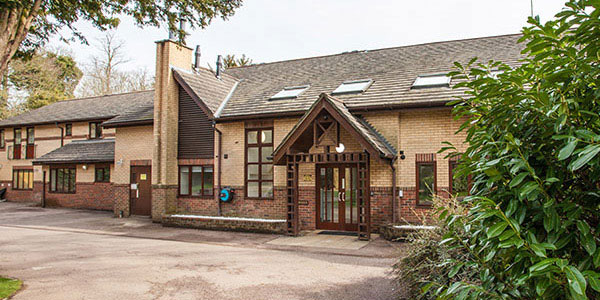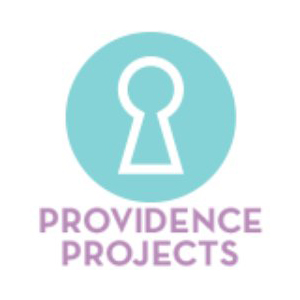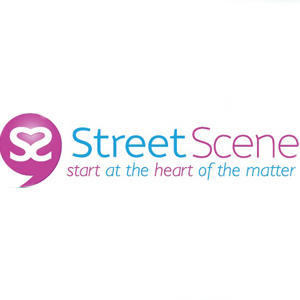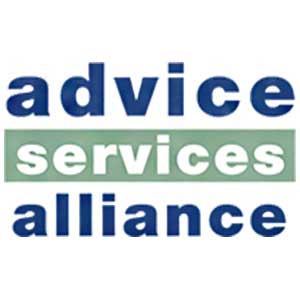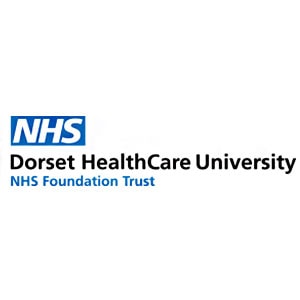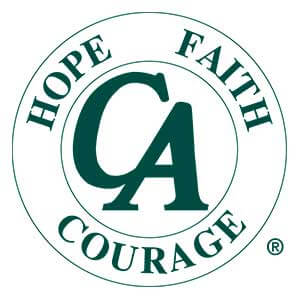Alcohol & Drug Rehab in Bournemouth
Nowhere in the UK is free from the blight of substance abuse and addiction, but large and popular coastal resorts such as Bournemouth are, unfortunately, especially susceptible. Alcoholism and addiction to illegal drugs and prescription medication are a growing problem, causing countless individual tragedies and collective social strife on a grand scale.
However, the picture is not an entirely gloomy one: recent years have seen significant advances in the treatment of addiction and the establishment of a growing number of dedicated treatment facilities. If you or a loved one are struggling with addiction in or near Bournemouth, it is not too late to get help. Read on to discover how rehab can set you back on the path to a happy, healthy, addiction-free life.
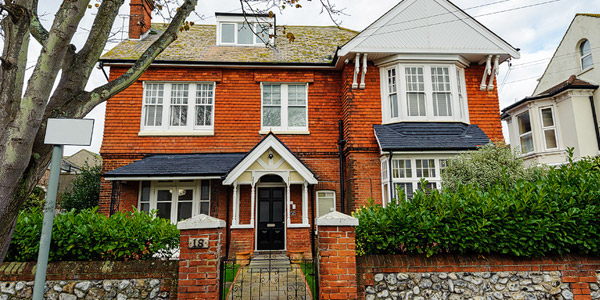
The Recovery lighthouse is a 13 bedroom alcohol and drug rehab facility set…
- Private
- Holistic Treatment
- 24/7 nursing
- Residential
Featured Rehabs
At Primrose Lodge we genuinely care that our patients make a full recovery …
Banbury Lodge is a private UKAT rehab facility based in Banbury, Oxfordshir…
Liberty House Clinic is a fully furbished detox and rehabilitation facility…
Finding Treatment near Bournemouth
-
- Residential
- 12 Step
- Family Workshops
- Holistic Therapies
-
- Residential
- Drugs & Alcohol
- Aftercare
- Resettlement
- Load More
-
- Residential
- Drugs & Alcohol
- Aftercare
- Resettlement
-
Park Lodge
Gloucester Road
Boscombe
Bournemouth
BH7 6JE0 review- Residential
- Drugs & Alcohol
- Aftercare
- Resettlement
-
- 12 Step
- Group Setting
- Free
- Outpatient
-
Hahnemann House
Hahnemann Road
Bournemouth
Dorset
BH2 5JW0 review- 12 Step
- Group Setting
- Free
- Outpatient
- Load More
Drug & Alcohol Rehab Services in Dorset
- A
- B
- C
- D
- E
- F
- G
- H
- I
- J
- K
- L
- M
- N
- O
- P
- Q
- R
- S
- T
- U
- V
- W
- X
- Y
- Z
What Is Rehab?

Residential rehabilitation – or “rehab” – describes the process by which an addict gets treatment for their addiction at a dedicated facility, as well as being a term for the facility itself. At rehab, a patient undergoes detoxification (“detox”) and withdrawal with medical assistance and engages in therapy which reveals the underlying causes of their addiction, all in a pleasant, safe and confidential environment.
The consensus in the medical community is that rehab is the most effective approach to the treatment of addiction, in that it provides addicts with the greatest chance of achieving a permanent recovery.
Its ability to tackle both physical dependency and psychological addiction in one treatment programme is crucial – many methods of treatment focus only on one aspect or the other – and, indeed, in mainstream culture “rehab” has become synonymous with addiction treatment.
How Can I Get Someone into Rehab?
It is not excessive to say that when it comes to the treatment of addiction every day counts: thousands of people die each year in the UK from substance abuse and countless more fall victim to accidents or acts of violence in which alcohol or drugs – or both – are a factor.
Because of this terrible toll, and because even an apparently otherwise healthy addict can succumb at any time to overdose or the aforementioned accidents, getting help as soon as possible is crucial to minimise the risk that you will become another heart-breaking statistic.
While the NHS can offer high-quality addiction treatment services, the waiting lists for these services can be distressingly long, and if you or someone close to you need help time is of the essence: reach out today to discover what private options may be available to you. Call 0800 024 1455 to speak with an addiction specialist.
Advantages of Private Rehab
Any addict can testify that the temptations of their daily environment can be so great as to make individual attempts to “get clean” all but impossible. Rehab offers a pleasant, peaceful, secure and confidential setting, far from those temptations, in which addicts can focus solely on recovery.
Upon entering rehab, an addict will be assessed by a medical team before embarking on a period of detox and withdrawal supervised by highly experienced professionals who are on hand to make sure that this period is as safe and as comfortable as it can be (this may include the provision of certain medications to ameliorate the worst effects of withdrawal).
Following the detox phase, the patient will move into therapy – different models provided in various forms including group and one-to-one – aimed at addressing the root causes of addiction and at providing the addict with defence mechanisms against relapse.
Throughout their stay the patient will be given healthy nutritious food based on a bespoke dietary plan and will be given a tailored fitness schedule (on the basis that a healthy mind requires a healthy body).
Following the completion of treatment, the patient will leave rehab – but this does not mean that their recovery is complete: this is an ongoing process requiring constant attention and hard work, and as a result the patient will receive free aftercare for up to a year after leaving the facility.
What Does Rehab Cost in Dorset?
The cost of private rehab can vary significantly by treatment programme, and from facility to facility. As a rough guide, standard costs for rehab in and near Bournemouth range from between £5,500 and £11,000 per month, though the cheapest rehab treatment can start from as little as £834 per week. For more details, call 0800 804 4755.
NHS Addiction Treatment Options Bournemouth
You may feel that private rehab is currently not an option for you – perhaps for reasons of cost, or because you do not feel that you are able to spend the required time away from family and/or work obligations. If this is the case do not despair: relevant NHS and charity resources can be found in Bournemouth and across Dorset. Consult your GP about which of these resources may be available to you.
Advantages of NHS Treatment
One obvious advantage of NHS treatment is, of course, financial: NHS options are free at the point of use while private rehab comes at a cost which may be off-putting to some addicts (although set against the costs – financial and otherwise – of addiction, this investment may be comparatively minor).
They are also very accessible geographically – the NHS operates in every corner of the country – and offer a high standard of service (though that quality does vary by location and, again, waiting times may be distressingly high).
Addiction Support Groups
Support groups comprise individuals who are themselves recovering addicts – some only recently free from addiction, while others may have been clean for many years – who come together at regular meetings to give and take mutual support.
Here they offer advice, share stories, show solidarity and sympathy, and provide simple companionship. Attendance at support groups is free and the only qualification for participation is a commitment to leading a life free of substance abuse.
Alcoholics Anonymous (AA) is the most famous support group organisation and the one on which most others are modelled. AA was founded in 1935 and runs on a 12-step programme of personal and spiritual development (with one of the steps being a recognition that a higher power – such as God – can assist with an alcoholic’s recovery).
Narcotics Anonymous (NA), founded in 1953 and based directly upon the AA model, is the second-largest support group organisation worldwide and caters to recovering drug addicts specifically. In a similar vein, but supporting those recovering from addictions to specific substances, are Cocaine Anonymous (CA), Heroin Anonymous (HA), Marijuana Anonymous (MA) and Crystal Meth Anonymous (CMA), all of which operate 12-step programmes.
There are also support groups such as Al-Anon and Nar-Anon assisting the families and friends of addicts which typically hold meetings alongside those for the addicts themselves.
Support groups typically meet weekly, though each local chapter is managed independently, and meeting times and venues are subject to change. To find information on meetings in or near Bournemouth, see the relevant websites: Alcoholics Anonymous
,Narcotics Anonymous; Cocaine Anonymous; Heroin Anonymous; Marijuana Anonymous; Crystal Meth Anonymous.
Types of Counselling

Private addiction counsellors operate like “normal” psychotherapists (though with an obvious emphasis on tackling the causes and consequences of addiction) and are often a very useful option for individuals with very busy schedules who cannot immediately take the necessary time to undergo a full treatment programme at rehab, as well as being a valuable resource for those who have completed rehab and wish to have supplementary support during recovery.
Private counsellors can be found across the country, providing various different therapy models; they can be seen by private appointment – typically on a weekly basis – and charge accordingly. Some counsellors are available on an emergency basis.
Travelling to Bournemouth
Travelling to Bournemouth is relatively via the neighbouring counties of Hampshire (which Bournemouth historically belonged to), Wiltshire and Somerset. The A338 (via Spur Road) and A350/A35 (via Poole) offer direct routes into Bournemouth. The M27 and A31 provide the most direct route from Southampton.
The National Express provides coaches that serve most of the area including Bournemouth University. Yellow Buses also serve most of the Bournemouth area.
If you are arriving by train the South Western Railway provides a comprehensive service, serving Southampton, Winchester and Basingstoke to the East and Poole, Wareham, and Dorchester to the west.
If you are travelling from outside of the UK then Bournemouth Airport provides coverage to 8 EU countries including Spain.
How to get to Primrose Lodge from Bournemouth
Primrose Lodge is a unique rehab clinic located in the historic town of Guildford, Surrey. Boasting a private gymnasium, purpose-built treatment rooms and en-suite bedrooms, this attractive, spacious building is the perfect getaway for those battling addiction.
Primrose Lodge’s highly experienced staff are on hand 24/7 to ensure patients’ safety and comfort. Integrated treatment programmes designed to address the root causes of addiction are provided in a tranquil and confidential environment in which patients can focus wholly upon their recovery.
To get to Worplesdon from Bournemouth, take the A338 to Ashley Heath Roundabout and then join the A31. Take the A31 as far as the M27; join the motorway and then at junction 4, exit onto the M3. Stay on the M3 to junction 4, then take the A331 exit. Stay on that road to the B3411; continue onto B3405 and then join the A324. Join the B3032, take the B380 and finally the A322; follow signs to Worplesdon.
Primrose Lodge
Perry Hill
Worplesdon
Guildford
Surrey
GU3 3RY


